“Nature is just so much stronger in the end” – Interview with Tuomas Saukkonen from Wolfheart about their new album
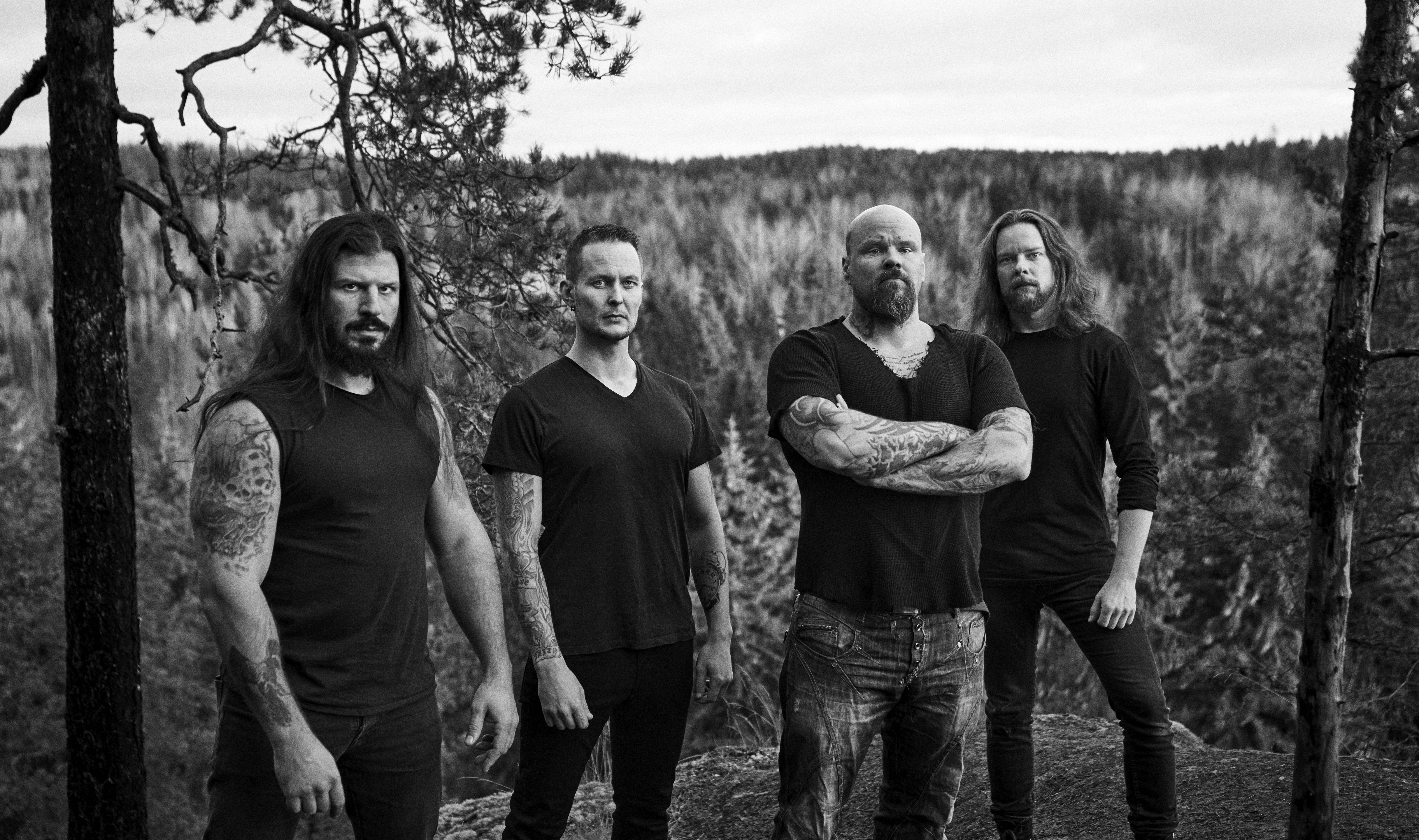
Luckily, there is Internet, so we could easily “meet” Tuomas Saukkonen from Wolfheart, currently in Lapland, on Skype. In our interview, we discussed their upcoming album Wolves Of Karelia (our review here), the Finnish Winter War, the endurance of the Finnish people, the rough nature and how all of this entered the songwriting for the new LP.
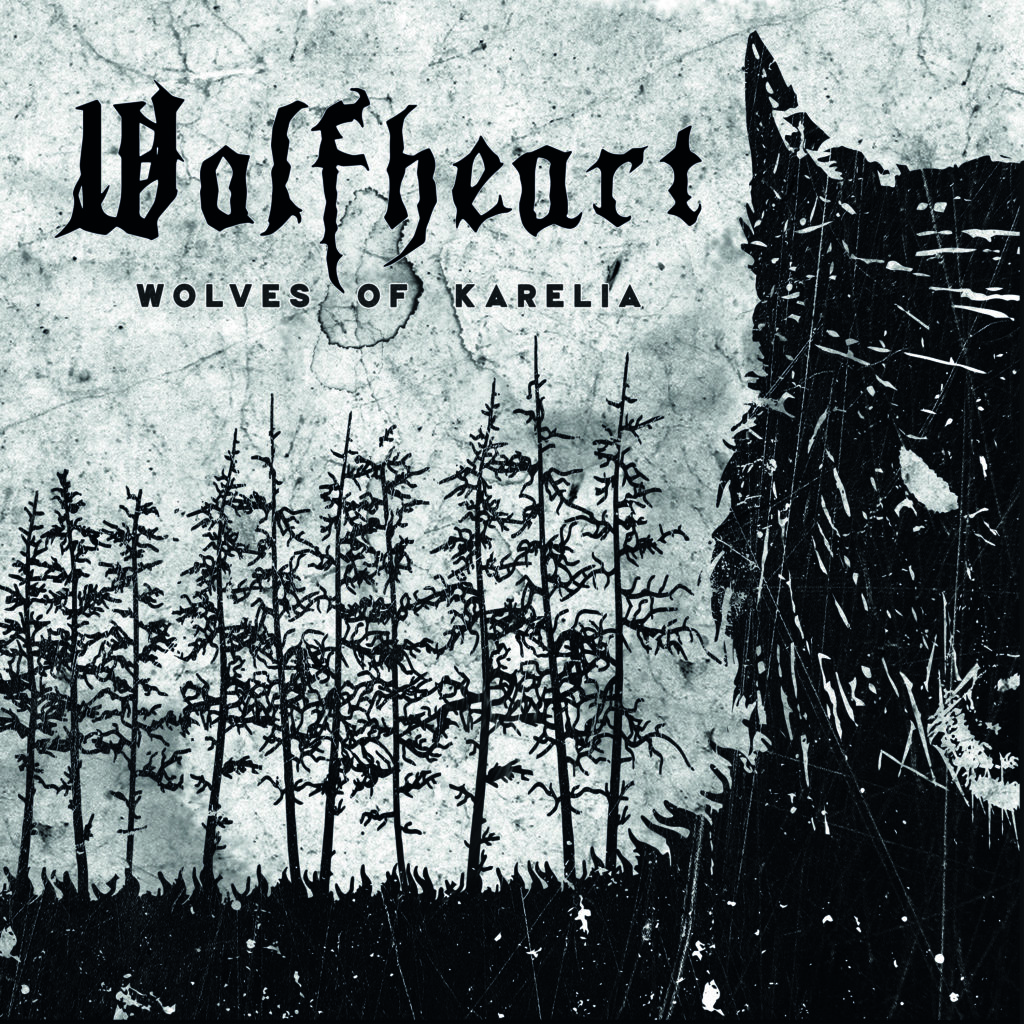
Jasmin: Hi! I’m Jasmin from SKULL NEWS, an online magazine for culture and music in Germany. Thank you Tuomas for agreeing to do the interview!
Tuomas: No problem, all my pleasure!
Jasmin: Wonderful! How are you?
Tuomas: A little bit easier now, doing the album promo. I am in Lapland right now, just to relax with my girlfriend.
Jasmin: So, you’re in Lapland now, up in the North? How’s winter there, did you get a little bit of snow?
Tuomas: Well, here’s a real winter. We don’t have the proper winter in Southern Finland anymore. There hadn’t been proper snow, yet, so it’s nice to see at least a bit of it here. It looks like winter.
Jasmin: You define your music as “Winter metal” and I was wondering, if you had grown up in a much warmer country, in an opposite landscape, let’s say the desert of Nevada, what kind of music you would be composing.
Tuomas: I don’t know, it’s hard for me to put myself in this kind of environment since I have grown up in a region where there are always long winters. Probably some kind of fiddling, I don’t know, but I am glad I wasn’t born in that kind of environment.
Jasmin: You prefer the cold?
Tuomas: It’s not that I prefer the cold. I don’t like the cold, but I like how winter looks like and how it feels like, if you count out the cold. But I like the calmness and the long dark period as a contrast to the summer. To have only summer, that would be too much for me.
Jasmin: Also very present are the wolves, already in the band’s name and the title of the new album, Wolves of Karelia. Are you more a lone wolf or a wolf pack kind of person?
Tuomas: A lone wolf.
Jasmin: The album itself is about a historic subject, the Winter War of 1939/40 between Russia and Finland. If you could travel in time, would you go back to this period to see how it was in reality? Or to another decade, another era?
Tuomas: I definitely wouldn’t go back to this time, because I was listening and reading a lot of interviews of the veterans. And it’s been a really rough time, war is always rough, it’s never easy, no matter where it happens or when. But it’s also been the environment, in Lapland, where parts of the war took place, in winter, it can be as cold as minus 40 °C. So the environment was really rough. I trust the veteran’s words, I don’t need to see it. I would like to go 100 to 150 years into the future, to see if mankind still exists. At the moment, it looks very unstable, how things are going. I would be very curious to see what is going on in 100 years.
Jasmin: You mentioned the interviews with the veterans. Have you let them listen to the album? Will you ever?
Tuomas: No, no, I didn’t interview them personally, but I listened to their stories on the radio and read about the war. I was more interested in the personal perspective and not in a historic documentation of certain battles. I don’t think they would understand this kind of modern music. Of the veterans, there are only a few left alive and they’re really old now. I don’t want to disturb them. I think, that they’ve already had enough of the Winter War in their lifetime, so I would just let them be. Maybe they would understand the lyrics and the meaning, but not the music.
Jasmin: Next week will be the 80th anniversary of the Moscow Peace Treaty. Have you thought about releasing the album to that date? The actual release date, 10th of April, is shortly after….
Tuomas: That would be too political from my point of view. I am very careful with the subject anyway, I didn’t want to have any war themes on the cover. I didn’t want to release the album in connection with this date, because I want to keep music being music and not take a political stand. Everything else would be too much for me. I’ve already been careful with the cover and the artwork, also with the title, as I didn’t want to put the focus on the war theme any more than what is already mentioned in the lyrics. All the lyrics are based on the interviews with the veterans, about what those men felt during the battle, and after and when they were sent into this war. Everything is from a personal point of view and I don’t want to make it bigger than that. And Russia is our neighbor and we had a complicated history and I don’t see it as my task as part of my generation, to dig up anything from this complicated time. It’s about how the individuals experienced the war.
Jasmin: On the album, there are very strong images you create with the music and the lyrics, of war but also of nature. I was wondering if the war has left any traces in the nature, the landscape, that are still visible today?
Tuomas: There are no more traces of the war itself, because it’s been the Second World War. There is no weaponry left, luckily, the defense lines are still up, although nature has taken most of it, you still can see the trenches in certain areas. It’s still visible! I visited one of the biggest defense lines and of course the bunkers are still there. The actual battle didn’t leave any traces. There had been heavy bombings and nature has covered those traces completely, you can’t see that anymore. It’s been so many decades and nature has camouflaged everything.
Jasmin: Isn’t it kind of reassuring that even if mankind is destroying so much, for example during wars, isn’t it reassuring that nature can reverse most of it?
Tuomas: Yes, it’s reassuring. I like this. I also don’t think that Earth will be destroyed, it will be more that mankind will destroy itself and nature will stay. Nature will always prevail.
Jasmin: Yeah maybe. In one of the songs on Wolves Of Karelia, “Born From Fire”, there is this very strong line, “lead them into the wild, cut their lines of supply”. On this album how you describe it, is nature an ally, or an additional enemy? Or both, or changing?
Tuomas: It’s both, it can work with you or against you. You have no control over it, it can be really both. Of course, if you live there and know the environment, you grew into that environment and use it at your advantage. But still, it will eventually be stronger and nature will never be something that you can predict completely.
Jasmin: Would you say that humans are more predictable than nature, or less?
Tuomas: Ah … that is an interesting and complicated question. Hm … I wouldn’t be able to answer this question. I think that nature is making bigger changes, on a much bigger scale. Like global warming. People are debating if it is happening or not, I only can say that it is now warmer than it was 15 years ago. I don’t care about the reason and I won’t take a stand on that, but this situation of the climate getting warmer changes a lot of things that I already noticed in Finland. The nature works on a much bigger scale. Both, humans and nature are equally chaotic, but nature is just so much stronger in the end.
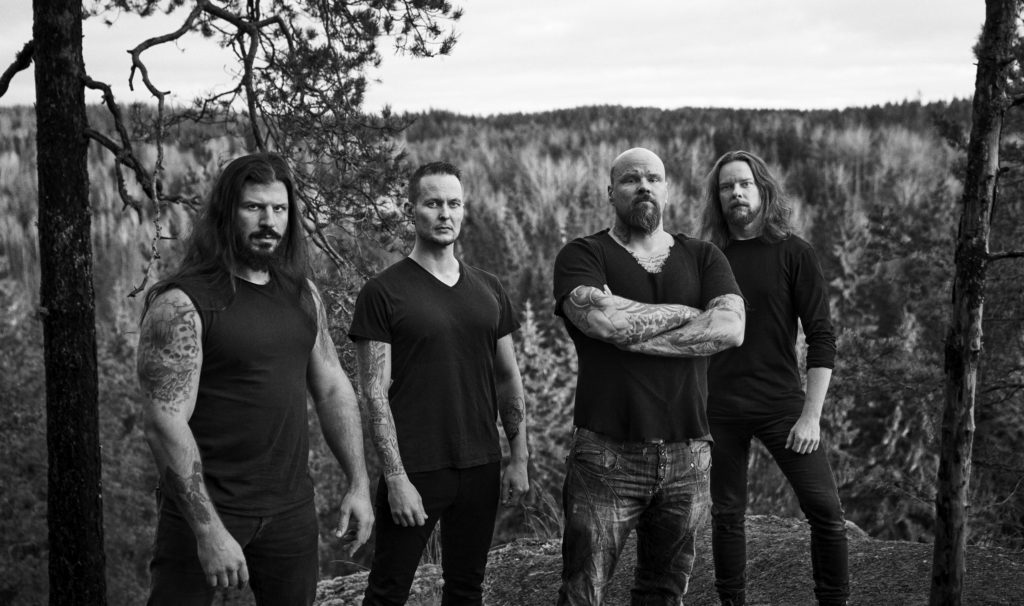
Jasmin: As you are mentioning the winter again, there’s the line in “Horizon On Fire”: “coldest days of winter you were trained to endure to withstand the fierce nature”. Is this endurance and capacity to adapt to a rough environment part of the Finnish pride?
Tuomas: It is part of the Finnish pride! And in these lyrics, it is about this mindset of taking things as they are, especially in the remote areas, when the children had to go to school they had to walk in the snow for 10km in each direction. Or use skis for 20km, or herding reindeers in Norther parts of Laplands, you were skiing 40km a day and those skis at that time were nothing like the modern models. Today, they have snowmobiles making the way. At the time, people grew up and were trained to travel under hard conditions and being outdoors for very long periods of time. That came in really handy in this war, especially this kind of guerilla war, when very small groups of soldiers tried to sneak behind the lines of the enemies. That really meant that you had to be on foot or on your skis, sometimes 50km when it was minus 40°C. You grew up like this and knew what to do. It must have been a shock for the Russian troups, their soldiers came mostly from the big cities like Moscow or St. Petersburg and they only got the normal army training. Then suddenly, they got sent to Lapland, where the distances are huge and you have to go there on foot. All of this in shitty clothes, that was the biggest problem for the Russian soldiers, that they were not so well equipped. That gave the Finnish soldiers quite a bit of an advantage. Not because of a different army training, but because of them growing up in this environment.
Jasmin: This spirit, of resisting, is it still present in the younger generation?
Tuomas: No, sadly no. I think it is the same in every country that the newer generations are getting softer and softer. I don’t see this spirit anymore, I work in landscape, and there it is a little bit different. I meet some very hardworking young guys. The Finnish life isn’t always easy, the summer is super short, winter usually long, that makes it a little bit rougher here than in other countries, like in Central Europe. But in general, the younger are not as tough. If I were to compare the grand and great grand fathers who fought in the war, they would be the wolves of Karelia and we would be teddy bears.
Jasmin: Or cute little puppies.
Tuomas: We would be the teddy bears of independent Finland, when they were securing the Independence. In my opinion, the contrast is there. I don’t want to say bad things about the younger generations of Finland, but it is how I see it.
Jasmin: Maybe the comfort of a more developed lifestyle?
Tuomas: I think the same happens everywhere, that you don’t have to fight for certain things anymore. The development is going everywhere, but if you ask me to compare them with the previous generations, I like to honor their attitude and I am not saying I am better than anybody else. I still stand with what I said about teddy bears and wolves.
Jasmin: That’s a great comparison. Maybe some young people need to get roughed up in the mosh pit.
Tuomas: That’s a very good point of view. I’ve done it a number of times, when the mood is good on stage, which is not always happening, and when I am happy about the mosh pit, I jump in with the crowd doing the song. A mosh pit, maybe it is a good method for the young people to feel a little bit of how rough it used to be!
Jasmin: The roughness of nature and the honoring of the elder generation, you can really hear it in the album. The violins and guitars sometimes sound like strong winter storms and you can feel the cold! It is also a very Finnish subject, the nature, winter, the war, also the images that you create. What do you think about this, how can non-Finnish people relate to Wolves Of Karelia?
Tuomas: I doubt they can relate like I do. What I wrote in the music, the people around me experience the same. The people outside of Finland, where our major audience is, for them, it is me, introducing them to Finland, to my experiences. I don’t even mean them to experience it as I do. It is like my way of introducing Finland with its nature and history. While writing, I always know that it is in the eye of the beholder, how they perceive things, so it’s always going to be different.
Jasmin: Isn’t it something that some, many, artists do, express themselves and their experiences through their music? And isn’t it what makes metal great, that it is hand make and authentic music?
Tuomas: Yes, I agree!
Jasmin: The song “The Hammer”, there is the line “The Hammer of the North”, is it a coincidence that it’s the same as a title from the Swedish metal band Grand Magus? Or is it referring to Thor’s hammer?
Tuomas: It was more like my way of describing the force of the Finnish army, when they were hugely outnumbered, they were still able to, not to stop, but also to win the battle. They pushed the Russian army back, I knew that Grand Magus has this song title, I actually like this band a lot. Of course, I was familiar with the song, but I didn’t want to change my song title, as it is about another subject. I didn’t want to change my idea and also, they didn’t invent the word “hammer”, I am allowed to use the line. It fits very well in this part of the song.
Jasmin: It is a strong song, very powerful. I was surprised that you chose“Ashes” as the first single.
Tuomas: I didn’t. I had a completely different idea for the first single, but the management and the label were really insisting and I let them choose. Their opinion is always an option, but I can always overrule their decisions. I am very careful when I conclude a contract with a label, there is always the clause, that I maintain the artistic freedom, so the label never can sell me out. Or tell me what to do and when to do it, I tell them when I am ready to record a new album, the song titles, the artwork, the album title. But I do understand, that as a songwriter, I am too close to the music sometimes. Sometimes, what I would pick for the singles, it is not the best to represent the album. I hear and see the music differently, so sometimes, when it comes to this question, I listen to the recommendations of the label. This time, I took their advice.
Jasmin: It’s stunning, as it is the last song and concluding the album, with this long fade out in the end, that it had been chosen to introduce Wolves Of Karelia. The story is told in “Ashes”, the story is over. However, it’s been a great choice. People from a fan page on Facebook (actually an Amorphis fan page) told me to tell you that they love “Ashes”, that it’s a great song and they can’t wait for the album.
Tuomas: Tell them, I am very happy with their opinion and that they won’t have to worry, the rest of the album is a lot faster. I always love to write an ending song for an album and they’re always slower than the rest of the album. Wolves Of Karelia is in fact the heaviest album of Wolfheart, actually. And at the same time, it is the slowest single ever, tell them, it’s a contrast, that’s coming.
Jasmin: Are you not going to spoil something?
Tuomas: No! I won’t say anything!
Jasmin: Oh … I’ve seen that you’ve already announced tour dates for the US and Canada. When will you know about tour dates in Europe?
Tuomas: We’re doing the booking right now and should have the dates in a week or two. I don’t know when it will be published, but I can already tell you that it will be in autumn of 2020. First, we’re doing festivals in summer, and end of September, we will start with our European tour.
Jasmin: Everything you said was interesting and you gave us a lot of insight, but probably this information is the most anticipated by the fans!
Tuomas: We’re definitly are going to tour in Europe. We just have a huge market in Northern America so it makes sense to start the tour there, but we are coming to Europe, no worries.
Jasmin: That’s very good news! Thank you again, Tuomas, for your time and the great discussion.
Tuomas: It’s been a pleasant interview! Thank you!
Wolfheart auf Facebook
Wolfheart auf Instagram
Wolfheart Shop
Foto Credits: Valtteri Hirvonen
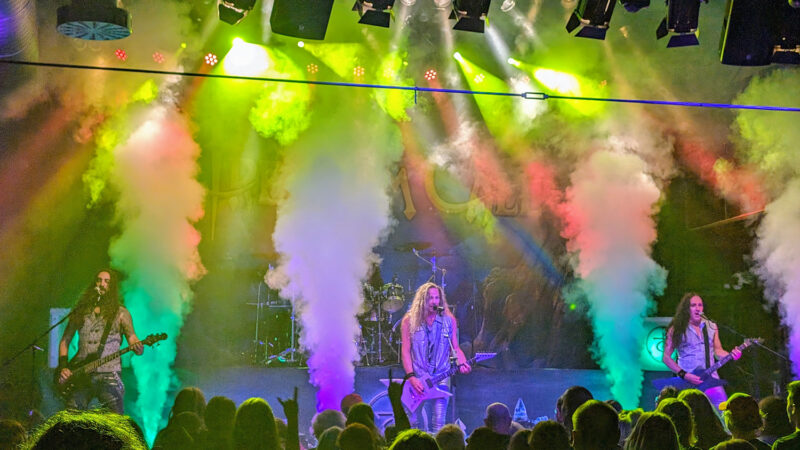
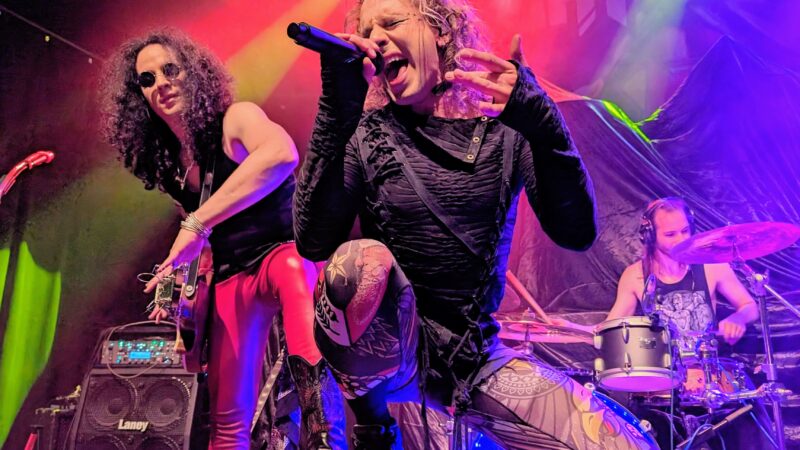
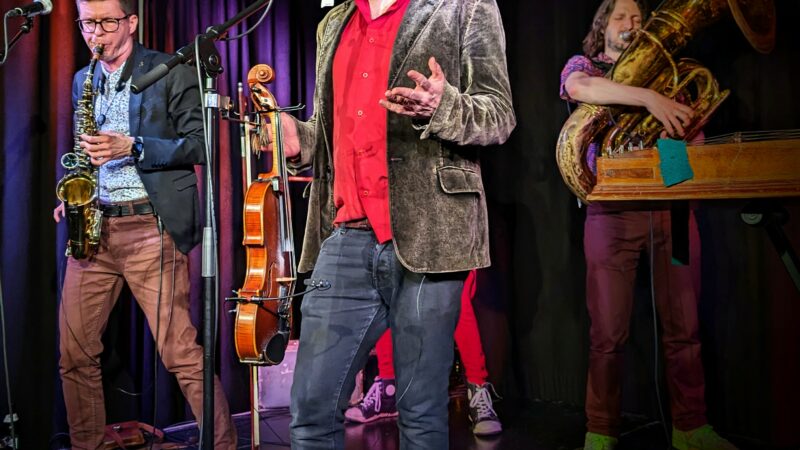

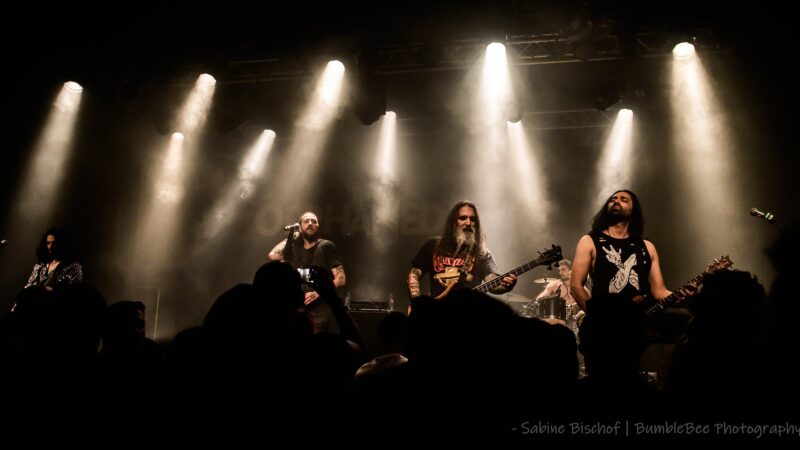
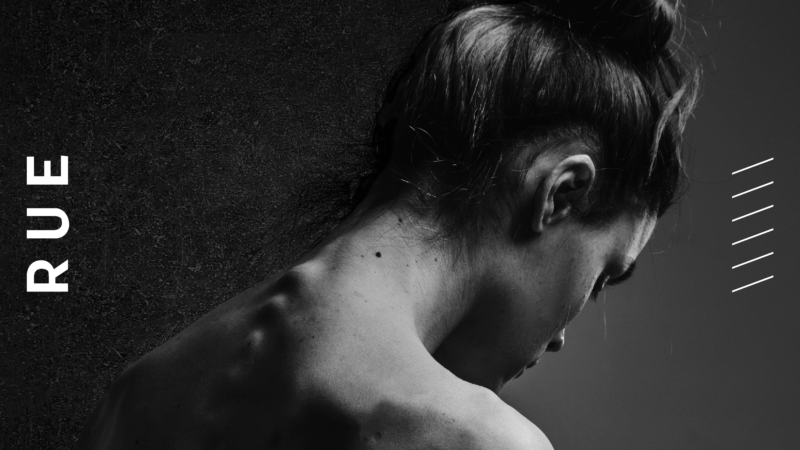
One thought on ““Nature is just so much stronger in the end” – Interview with Tuomas Saukkonen from Wolfheart about their new album”